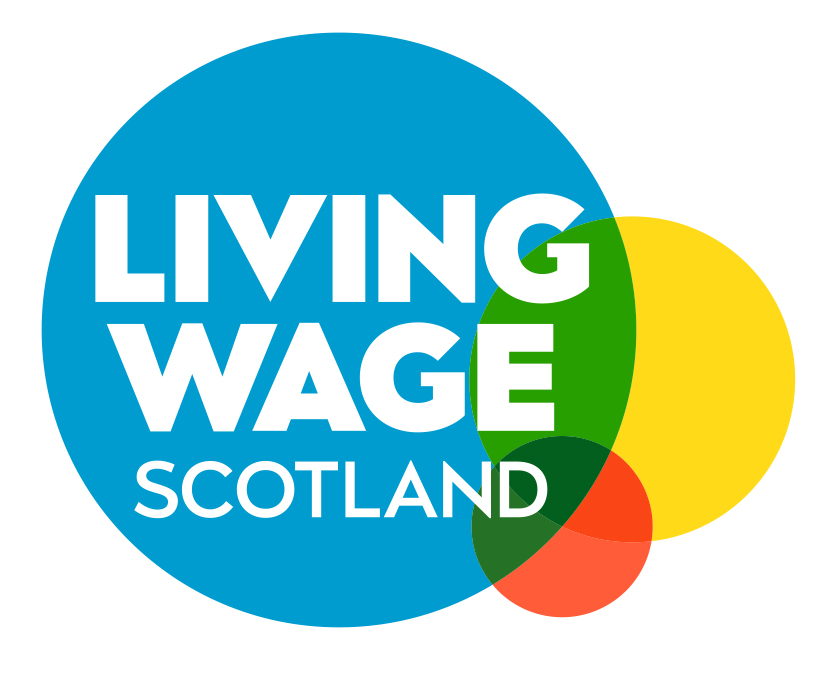2022 has by no means been an easy year for low paid workers, or for businesses in Scotland. We all want to live in a fair and compassionate society, but with food and energy bills soaring and inflation at a 40-year high, this year has seen more and more people being pulled into poverty.
It has been encouraging to see hundreds more Scottish based employers step up to play their part by publicly committing to pay the real Living Wage, the only rate calculated on the cost of living. However, this year has served as a stark reminder of what life on low pay means for hundreds of thousands of workers across Scotland.
Leading the way
Scotland is leading the way when it comes to paying the real Living Wage. In 2022, a record 91% of employees aged over 18 earned the real Living Wage or more in Scotland. This is higher than any other country in the UK.
Over the past year, we have welcomed over 560 new employers to our Living Wage network meaning that there are now more than 2,900 accredited Living Wage employers based in Scotland – proportionately 5 times higher than the rest of the UK! Collectively, these employers have delivered a pay rise to over 59,000 employees and put over £370million into the pockets of low paid workers in Scotland.
We saw a surge of accreditations up to and during Living Wage Week strengthening our key message that the real Living Wage is more important than ever.
Keeping up with the cost of living
This year, the Living Wage Foundation brought forward the announcement date for the new real Living Wage as a direct response to rising living costs. Typically announced annually during Living Wage Week in November, the 2022 real Living Wage rate of £10.90 was announced in September – a 10.1% increase on the previous rate and the largest ever year-on-year rise.
This was a huge boost for low-paid workers and meant that a full-time worker earning the new real Living Wage would earn £2,730 a year more than a worker earning the current government minimum (NLW), and almost £2,000 more than if they had remained on the previous real Living Wage rate.
A high impact focus
At Living Wage Scotland, we have continued to focus our efforts on engaging industries with high levels of low pay, including hospitality and tourism, and social care.
Our hospitality and tourism network has grown by 30%, with more than 50 new employers including Virgin Hotels and Aberdeen Performing Arts, joining. Just this year alone, Living Wage accreditation has delivered an uplift to the real Living Wage for more than a thousand of workers in the industry.
However, as was the case throughout the numerous lockdowns of recent years, 2022 brought its own challenges for hospitality and tourism. We know employers are under increasing pressure when it comes to recruitment challenges, soaring energy bills and reduced footfall as consumers tighten their own purse strings in response to increased living costs. That is why we continue to hold meetings with our Hospitality and Tourism Steering Group whose expert insight helps shape our approach and engagement.
In social care, we passed the 100 Living Wage employer milestone and awarded accreditation to our largest ever private and third sector social care providers: Randolph Hill Care Homes and The Richmond Fellowship Scotland. In 2022 we have delivered a pay rise to more than 3780 social care workers, accounting for 34% of all uplifts in social care since 2014.
Working in partnership
We now have ‘Living Wage Place action groups’ delivering ambitious plans to drive Living Wage accreditation in Aberdeen, Dundee, Edinburgh, and Eildon in the Scottish Borders.
The launch of ‘Making Aberdeen a Living Wage City’ laid out a bold plan to see the Living Wage employer network in Aberdeen more than double in the next 3 years.
In Dundee, the action group committed to a further 3 years and celebrated the accreditation of all 5 of the city’s largest cultural institutions.
A record number of hospitality and tourism employers in Edinburgh became accredited, resulting in the Edinburgh action group achieving their target three months early. The group also won the Award for Outstanding Leadership at the Living Wage Scotland Awards ceremony.
The Eildon action group saw their ambition to expand their approach across the Scottish Borders receive a boost with the accreditation of Farne Salmon, the largest private employer in the area.
The other side of the coin
Living Wage Scotland began delivering the Living Hours scheme in 2021, building upon Living Wage accreditation. We know that security of hours is the other side of the coin to help people break free from in-work poverty. Employers who join the Living Hours scheme commit to providing:
- at least 4 weeks’ notice for every shift, with guaranteed payment if shifts are cancelled within this notice period
- a guaranteed minimum of 16 working hours every week (unless the worker requests otherwise)
- a contract that accurately reflects hours worked
There are now 18 Living Hours accredited employers in Scotland accounting for 38% of the UK-wide Living Hours network. Collectively, these employers have secured a Living Hours commitment for over 26,550 workers and include SSE plc, Edinburgh Dog and Cat Home and R&W Scott.
More important than ever
While we have made significant progress when it comes to ensuring more workers earn a real Living Wage, there are still around 221,000 below Living Wage jobs in Scotland.
At a time of rapidly rising living costs, and more people being pulled into poverty, paying at least the real Living Wage is the single most important thing employers can do to support their workers.
Living Wage Scotland are committed to working with more employers in the coming months to grow our Living Wage network further and deliver uplifts to more of Scotland’s workers at a time when it could not be needed more.
So, here’s to 2023 and all that it will bring!

